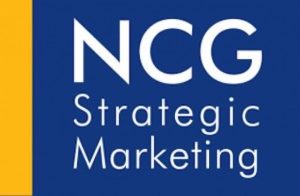I read an article this week that provides invaluable advice for attorneys, but it’s guidance that’s heard – and heeded – far too seldom. In fact, it will strike some lawyers as counterintuitive and wholly inappropriate for the profession of law. Nonetheless, this wisdom needs to be shared: “Dumbing down” your communications can be a smart idea.
The source of the article was Entrepreneur.com, so it wasn’t written specifically for attorneys – or even with attorneys in mind. Yet, its main point is as pertinent to lawyers who are communicating with their clients as it is to the entrepreneurs that the writers had in mind. (Which raises another favorite issue of mine – that all attorneys should think of themselves as entrepreneurs – but I’ll save that for another time.)
Why Dumbing Down Your Message Isn’t Dumb
Entitled, “Why Dumbing Down Your Message Isn’t Dumb,” the article, written by media trainers Andy Craig and Dave Yewman, makes a valuable point about the importance of speaking and writing in a way that anyone and everyone can understand. I’d add that if you have a visceral, negative reaction to the idea of “dumbing down” anything you write or say (and I can understand that), you may want to define your goal as “communicating with clarity,” which is always a good thing. And just so there’s no confusion, I would suggest that you should communicate with client-centric clarity.
As an aside, remember that there’s a big difference between that which is simple and that which is simplistic. Simple is good, whereas simplistic is not. Simple helps to get your ideas across, if in a stripped-down manner. On the other hand, simplistic involves crossing a line that you don’t want to cross. OxfordDictionaries.com defines simplistic as “treating complex issues and problems as if they were much simpler than they really are.” It’s not necessary – or desirable – to be simplistic in order to make your points in a simple and clear manner.
Returning to the main theme, it may be a fair question to ask whether “anyone and everyone” needs to be able to comprehend your message, but it’s critically important that your intended audience understands it. And for that to be true, you need to understand who your audience is, whether they understand legal jargon, and even whether they care about what you’re ostensibly communicating. Put another way, are you trying to help your audience understand something, or are you really just attempting to make yourself appear to be the smartest guy or gal in the room?
And who is your audience on a particular day? Are you writing for – or speaking to – your target market? If so, who are they, and what do they care about? Typically, of course, your target market’s top priority is seeking someone – such as yourself – who has significant experience with, and knowledge of, the specific issues that concern them. Luckily for them, you are an expert in these issues. However, you must go further than that today. You must communicate with them with a clarity that’s neither over their heads nor condescending.
Heeding the Wisdom of Bono
Someone who knows a thing or two about effective communication is Bono, whom you may know as the Nobel Peace Prize nominee, globe-trotting philanthropist, and spokesperson for big causes. In his spare time, he’s also the lead singer for U2. For many years now, we’ve seen Bono schmoozing with the likes of Popes, presidents and plutocrats.
According to Craig and Yewman, Bono once was asked how he manages to hold his own in conversations with economists and heads of state when discussing debt relief and financial plans for Africa. Bono replied, “If someone can’t explain to me very quickly what this particular theory is, I’m not coming up to the conclusion that I’m stupid and they’re smarter than me. I’m just saying, ‘You’re not very good at explaining, try it again.'”
It’s important to point out that Bono’s perspective on this issue isn’t unusual at all these days. However, for the most part, you won’t get the chance to try explaining something a second time to your prospect. Why? Because it only takes her a few, quick keystrokes to find a more client-friendly attorney. The power has shifted, and your prospective client knows that she doesn’t need to put up with someone who uses legal jargon as a shield, a sword or a wall.
Don’t be that someone. Make sure that your law firm website, your presentations, your emails, and your conversations position you as the attorney who communicates effectively, with client-centric clarity.


